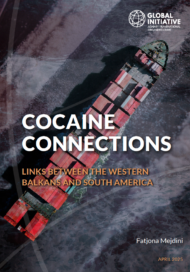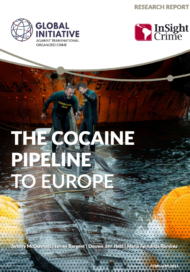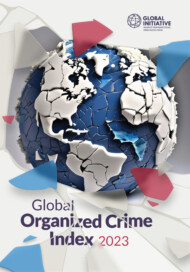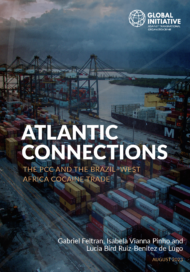Event Details
Where
Zoom Webinar
Posted on 01 Apr 2025
Over the last two decades, criminal networks from Albania, Bosnia and Herzegovina, Kosovo, Montenegro, North Macedonia, and Serbia have transitioned from regional actors to key players in the global cocaine supply chain. These groups have forged strategic relationships with coca producers, criminal organizations, and business circles across South America, especially in Colombia, Peru, Bolivia, Brazil, Ecuador, and the Caribbean.
This report maps out the growing footprint of criminal groups from the Western Balkans in the South American cocaine trade, providing an in-depth analysis of their evolution, operations, and impact. The study explores the rise of these groups amid a boom in cocaine production and sustained European demand. It details how they have leveraged their experience in regional conflicts, diaspora networks, and ties with European criminal organizations, such as the Italian mafia and Dutch-Moroccan networks, to establish control over transcontinental trafficking routes.
One of the report’s key findings is the adaptability of Western Balkan networks. They operate through emissaries, brokers, and businessmen who maintain relationships with local partners and facilitate logistics, often exploiting fragile institutions, corruption, and weak judicial systems in South American countries.
From maritime shipping to air trafficking, these groups have employed a variety of creative and concealed smuggling techniques. Their influence has also extended beyond Europe, reaching markets in North America, Australia, and Africa.
“Cocaine Connections” draws on over 100 interviews across the Western Balkans and South America, supplemented by secondary sources and law enforcement data. It offers an evidence-based overview of how these networks function, how they maintain a “no-clash” policy with rival groups, and how they exploit institutional gaps to thrive.
The report also examines implications for international law enforcement cooperation and makes recommendations to strengthen responses to this transnational threat.





